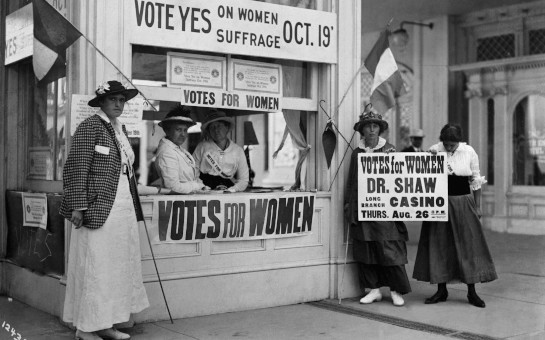Virgil Thomson
1896 - 1989
American
Summary
Included in his many honors and awards are the Pulitzer Prize, a Brandeis Award, the gold medal for music from the American Academy and Institute of Arts and Letters, the National Book Circle Award, the Kennedy Center Honors, the National Music Council Award, and 20 honorary doctorates.
Biography
Virgil Thomson was a many-faceted American composer of great originality and a music critic of singular brilliance. Born in Kansas City, Missouri on 25 November 1896, Thomson studied at Harvard. After a prolonged period in Paris where he studied with Nadia Boulanger and met Cocteau, Stravinsky, Satie, and the artists of Les Six, he returned to the United States where he was chief music critic for the New York Herald Tribune.
Virgil Thomson composed in almost every genre of music. Utilizing a musical style marked by sharp wit and overt playfulness, Thomson produced a highly original body of work rooted in American speech rhythms and hymnbook harmony. His music was most influenced by Satie's ideals of clarity, simplicity, irony, and humor. Among his most famous works are the operas Four Saints in Three Acts and The Mother of Us All (both with texts by Gertrude Stein with whom he formed a legendary artistic collaboration), scores to "The Plow That Broke the Plains" and "The River" (films by Pare Lorentz), and "Louisiana Story" (film by Robert Flaherty). In addition to his compositions, he was the author of eight books, including an autobiography.
Included in his many honors and awards are the Pulitzer Prize, a Brandeis Award, the gold medal for music from the American Academy and Institute of Arts and Letters, the National Book Circle Award, the Kennedy Center Honors, the National Music Council Award, and 20 honorary doctorates.
Virgil Thomson composed in almost every genre of music. Utilizing a musical style marked by sharp wit and overt playfulness, Thomson produced a highly original body of work rooted in American speech rhythms and hymnbook harmony. His music was most influenced by Satie's ideals of clarity, simplicity, irony, and humor. Among his most famous works are the operas Four Saints in Three Acts and The Mother of Us All (both with texts by Gertrude Stein with whom he formed a legendary artistic collaboration), scores to "The Plow That Broke the Plains" and "The River" (films by Pare Lorentz), and "Louisiana Story" (film by Robert Flaherty). In addition to his compositions, he was the author of eight books, including an autobiography.
Included in his many honors and awards are the Pulitzer Prize, a Brandeis Award, the gold medal for music from the American Academy and Institute of Arts and Letters, the National Book Circle Award, the Kennedy Center Honors, the National Music Council Award, and 20 honorary doctorates.
News

- A Collection of Chamber Operas
- 25th February 2020
- The following chamber operas offer a more intimate experience for captivating your audiences’ hearts and minds. Varying in size, language and content, the selections below offer repertoire for a wide range of...

- 'The Mother of Us All' | An Opera by Virgil Thomson and Gertrude Stein
- 29th January 2020
- 2020 marks the 100th anniversary of the passage of the 19th amendment, guaranteeing and protecting women’s constitutional right to vote. As part of Project 19, a multiyear New York Philharmonic initiative in honor...

- American Tone Poems
- 27th September 2019
- Sarah Kirkland Snider’s tone poem Hiraeth, a meditation on loss, nostalgia, and memory, will commence the New Jersey Symphony Orchestra’s 2019-2020 season October 11-13. Hiraeth is one of several tone poems...

- Virgil Thomson and Mark Morris | Washington Ballet Contemporary Masters
- 30th October 2018
- Drinke to me, onely, with thine eyes, And I will pledge with mine Inspired by the 1616 poem Song to Celia by British poet Ben Jonson, Mark Morris's Drink to Me Only with Thine Eyes is a...

- No Neutral Position — Suffrage, Opera, and Women's History
- 8th March 2018
- Oh, if I could but live another century and see the fruition of all the work for women! There is so much yet to be done. Susan B. Anthony, 1902 Ladies, there is no neutral position for us to assume. Gertrude...

- Psalms, Psalms, and more Psalms
- 1st November 2017
- With Lincoln Center's White Light Festival upon New York City, hats must be tipped to the Psalms Experience, featuring Psalm settings by 150 composers over 12 concerts. These include the U.S. premieres of Marrow, a...
Performances
There are no upcoming performances
Features

- Independent Repertoire: American History and Politics
- The rich, complex, and often tumultuous history of American politics has been a key concern for many American composers. Their political engagement ranges from earnest celebration of national triumph to sobering investigations of the painful past. These works help us better understand our current realities through the sounds of our history.

- A Collection of Chamber Operas
- Add some drama to your programs with our collection of captivating chamber operas.
Photos

Discography
- LabelAlbany Records
- Catalogue NumberTROY689
- SoloistEric Moe, piano
- ReleasedNovember 2004
- Works
- LabelNaxos
- Catalogue NumberDVD 2.110521
- ConductorAngel Gil-Ordóñez
- EnsemblePost-Classical Ensemble
- Works
New Waltzes for Piano: The Waltz Project Revisited


1/1
